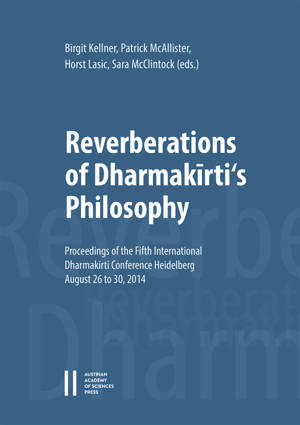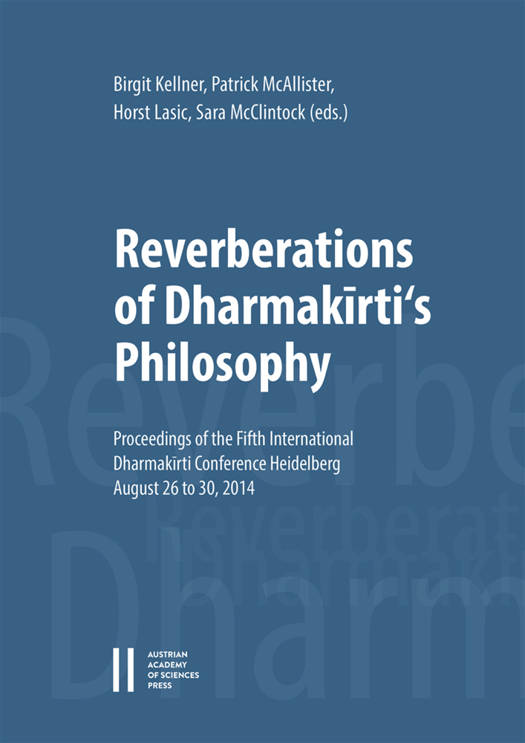
- Afhalen na 1 uur in een winkel met voorraad
- Gratis thuislevering in België vanaf € 30
- Ruim aanbod met 7 miljoen producten
- Afhalen na 1 uur in een winkel met voorraad
- Gratis thuislevering in België vanaf € 30
- Ruim aanbod met 7 miljoen producten
Zoeken
Reverberations of Dharmakirti's Philosophy
Proceedings of the Fifth International Dharmakirti Conference Heidelberg, August 26 to 30, 2014
Paperback | Engels | Sitzungsberichte der philosophisch-historischen Klasse | Beiträge zur Kultur- und Geistesgeschichte Asiens | nr. 904
€ 206,95
+ 413 punten
Omschrijving
The proceedings volume of the Fifth International Dharmakirti Conference (Heidelberg, August 2014) is concerned with the logico-epistemological school of Buddhism - a long-lasting tradition that pursued the analysis of knowledge, inference and proof within a Buddhist soteriological framework, based on the works of the Indian epistemologist and logician Dharmakirti (6th-7th c. CE). Having been shaped in the environment of medieval India, with its multiple mutually interacting and partly competing religio-philosophical schools, the methods and approaches of Buddhist logic and epistemology had lasting impact on the intellectual history of Tibetan Buddhism and were also received in China and Japan. The 30 papers in this volume offer a snapshot of an international research landscape with centers in Vienna and Japan. They address historical and philological problems raised by important recent manuscript discoveries, pursue specific research questions in the history of philosophy, and undertake philosophical reconstructions and critical examinations relating to individual theories and arguments. By focusing on currents in Asia that developed and applied rigorous philosophical methods, the volume aims to contribute to the formation of a better-founded global historical awareness in the field of philosophy.
Specificaties
Betrokkenen
- Uitgeverij:
Inhoud
- Aantal bladzijden:
- 555
- Taal:
- Engels
- Reeks:
- Reeksnummer:
- nr. 904
Eigenschappen
- Productcode (EAN):
- 9783700187813
- Verschijningsdatum:
- 18/12/2020
- Uitvoering:
- Paperback
- Formaat:
- Trade paperback (VS)
- Afmetingen:
- 211 mm x 35 mm
- Gewicht:
- 1664 g

Alleen bij Standaard Boekhandel
+ 413 punten op je klantenkaart van Standaard Boekhandel
Beoordelingen
We publiceren alleen reviews die voldoen aan de voorwaarden voor reviews. Bekijk onze voorwaarden voor reviews.







